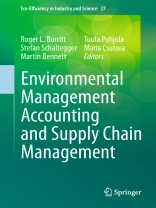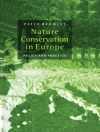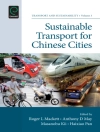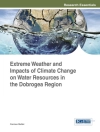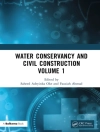This volume’s focus on the environmental accounting of supply chain processes is of particular relevance because these processes supply data about the environmental impact of relationships between business organisations, an area where the boundary separating internal and external accounting is ill-defined. Here, contributors advocate what they term ‘accounting for cooperation’ as a more environmentally positive complement to the paradigmatic practice of ‘accounting for competition’.
Table of Content
Foreword
Preface
Acknowledgments
List of Contributors
List of Figures
List of Tables
PART I: Introduction and Structure
1. Sustainable Supply Chain Management and Environmental Management Accounting
Part II: Contemporary Issues
2. Life Cycle and Supply Chain Information in Environmental Management Accounting: A Coffee Case Study
3. Motivations Behind Sustainable Purchasing
4. An Input-output Technological Model of Life Cycle Costing
5. Farm Risk Management Applied to Sustainability of the Food Supply Chain: A Case Study of Sustainability Risks in Dairy Farming
J. Leppälä, E. Manninen and T. Pohjola
PART III: Social Issues
6. Companies, Stakeholders and Corporate Sustainability – Empirical Insights from Hungary
7. Corporate Social Responsibility and Competitiveness – Empirical Results and Future Challenges
8. Social Impact Measurement: A Classification of Methods
PART IV: Economic Issues
9. New Decision Method for Environmental Capital Investment
N. Minato
10. Carbon Accounting in Greek Companies Participating in the European Union’s Emissions Trading Scheme: Current Practice and Projected Financial Implications
11. Environmental Management Accounting: Comparing and Linking Requirements on the Micro and Macro Level – A Practitioner’s View
PART V: Other Issues
12. The Benefit Side of Environmental Activities and the Connection with Company Value
13. Implementation of Water Framework Directive Obligations in Hungary: Estimating Benefits of Development Activities in Two Pilot Areas
14. Health, Safety and Environmental Costs and Chemical Selection in the Oilfield Industry: A Method for Informed Decisions During Project Planning
15. Sustainability Management Control
16. Impact Assessment in the European Union: The Example of the Registration, Evaluation and Authorisation of Chemicals (REACH)
Index
